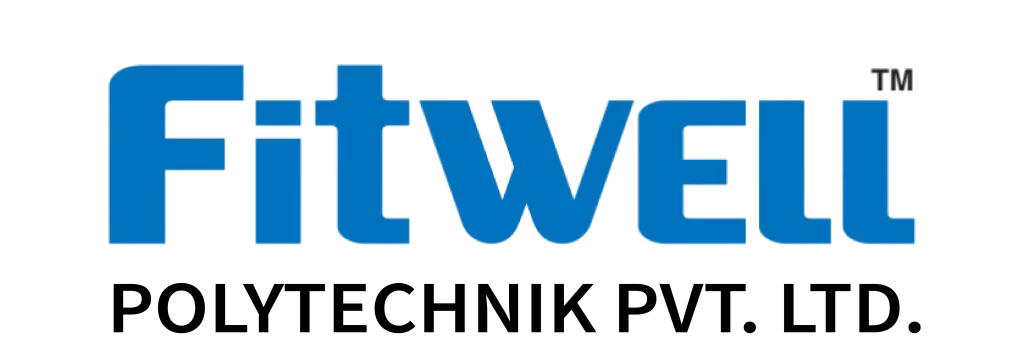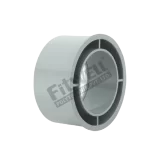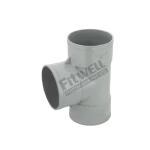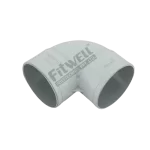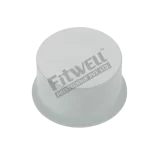The Ultimate Guide to UPVC Pipes and Fittings for Home and Industrial Use
Introduction
UPVC (Unplasticized Polyvinyl Chloride) pipes have become increasingly popular in the plumbing industry due to their durability, cost-effectiveness, and versatility. Whether for home plumbing, commercial buildings, or industrial setups, UPVC pipes offer a range of benefits. In this comprehensive guide, we’ll explore the applications of UPVC pipes in different settings, the importance of choosing the right fittings, and why Fitwell pipe fittings are a top choice for quality and reliability.
What Are UPVC Pipes?
UPVC stands for Unplasticized Polyvinyl Chloride, a rigid, durable form of PVC that does not contain plasticizers. The absence of plasticizers gives UPVC pipes a higher level of rigidity and resistance to physical damage, making them ideal for various plumbing applications. UPVC pipes are widely used for water supply, drainage systems, and even industrial fluid transport due to their corrosion resistance and ability to handle varying water pressures.
Key Benefits of UPVC Pipes and Fittings
Understanding the benefits of UPVC pipes helps highlight why they are a popular choice for diverse applications. Here are some key advantages:
- Corrosion Resistance: Unlike metal pipes, UPVC pipes do not corrode or rust, making them ideal for water supply systems, especially in areas with hard or acidic water.
- Cost-Effective: UPVC pipes are more affordable compared to other piping materials like metal and copper. Their long lifespan further adds to their cost-effectiveness.
- Chemical Resistance: UPVC pipes can withstand a range of chemicals, making them suitable for transporting water, acids, bases, and salts in both residential and industrial settings.
- Durability: With high resistance to impact and weather conditions, UPVC pipes are suitable for outdoor installations.
- Low Thermal Conductivity: UPVC pipes maintain water temperature effectively, minimizing heat loss during transport.
- Ease of Installation: Lightweight and easy to handle, UPVC pipes can be quickly installed using solvent welding or push-fit techniques, reducing labor costs.
Manufacturing Process of CPVC Piping Systems
Applications of UPVC Pipes in Residential Settings
1. Water Supply Systems
UPVC pipes are ideal for cold water supply systems in homes. They can withstand high water pressure without leakage, ensuring a steady flow of water throughout the household. Additionally, their resistance to corrosion ensures the water remains uncontaminated.
2. Drainage Systems
Home drainage systems benefit greatly from UPVC pipes’ resistance to corrosion and chemical reactions. UPVC pipes are commonly used for wastewater disposal and underground drainage due to their durability and non-reactive properties.
3. Rainwater Harvesting
UPVC pipes are often used in rainwater harvesting systems because they do not react with water or degrade over time. Their lightweight nature also makes them easy to install on rooftops and within rainwater collection frameworks.
4. Irrigation in Gardens
Home gardens and small farms can utilize UPVC pipes for irrigation. Their smooth interior surface ensures a consistent water flow, which is crucial for effective garden maintenance and farming.
Fitwell Pipe Fittings: The Trusted Choice for UPVC Installations
Choosing the right UPVC pipe and fitting for your specific needs depends on several factors:
- Application: Determine if the piping system is for water supply, drainage, chemical transport, or ventilation. This helps in selecting the appropriate pipe size and fitting type.
- Pressure Requirements: Consider the water pressure or fluid pressure that the pipes will need to handle. UPVC pipes come in various pressure ratings suitable for different applications.
- Pipe Fitting Compatibility: Ensure the fittings are compatible with the UPVC pipes being used. Fitwell offers a wide range of fittings designed to match different pipe sizes and pressure ratings.
- Environmental Conditions: If the pipes will be exposed to sunlight or harsh environmental conditions, consider using UV-resistant UPVC pipes and fittings for enhanced durability.
Conclusion
UPVC pipes are a versatile, durable, and cost-effective solution for plumbing in residential, commercial, and industrial settings. Their corrosion resistance, chemical stability, and ease of installation make them a preferred choice for various applications. When it comes to reliable UPVC pipe fittings, Fitwell stands out as a top manufacturer, offering high-quality products that ensure a secure and efficient plumbing system.
Ready to upgrade your plumbing system? Visit Fitwell Pipe Fittings for high-quality UPVC pipe fittings tailored to your needs.
Stay on the forefront of industry trends by checking out our latest content
Stay ahead with our latest content, designed to keep you informed on the newest industry trends and insights. Discover valuable updates that help you lead in your field.

Agricultural Pipes for Efficient Irrigation
Agricultural Pipes for Efficient Irrigation Introduction For farmers, an efficient irrigation system is the backbone of a successful agricultural operation. A well-designed system ensures that crops receive the right amount

Why CPVC Pipes Are Best for Hot Water
Why CPVC Pipes Are Best for Hot Water Introduction When it comes to hot water plumbing, selecting the right type of pipe is crucial. The plumbing material needs to withstand

UPVC Pipes & Fittings Guide for Home & Industry
UPVC Pipes & Fittings Guide for Home & Industry Introduction UPVC (Unplasticized Polyvinyl Chloride) pipes have become increasingly popular in the plumbing industry due to their durability, cost-effectiveness, and versatility.
Request a Free Consultation
Get personalized plumbing solutions with a free consultation from Fitwell.
